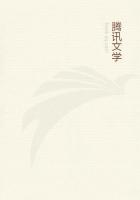Where we speak of self-mastery there is a certain duality, Act against essence; from the exercise of the Act arises the conception of the mastering principle- though one identical with the essence-hence arises the separate idea of mastery, and the being concerned is said to possess self-mastery.Where there is no such duality joining to unity but solely a unity pure- either because the Act is the whole being or because there is no Act at all- then we cannot strictly say that the being has this mastery of self.
13.Our enquiry obliges us to use terms not strictly applicable:
we insist, once more, that not even for the purpose of forming the concept of the Supreme may we make it a duality; if now we do, it is merely for the sake of conveying conviction, at the cost of verbal accuracy.
If, then, we are to allow Activities in the Supreme and make them depend upon will- and certainly Act cannot There be will-less and these Activities are to be the very essence, then will and essence in the Supreme must be identical.This admitted, as He willed to be so He is; it is no more true to say that He wills and acts as His nature determines than that His essence is as He wills and acts.
Thus He is wholly master of Himself and holds His very being at His will.
Consider also that every being in its pursuit of its good seeks to be that good rather than what it is it judges itself most truly to be when it partakes of its good: in so far as it thus draws on its good its being is its choice: much more, then, must the very Principle, The Good, be desirable in itself when any fragment of it is very desirable to the extern and becomes the chosen essence promoting that extern's will and identical with the will that gave the existence?
As long as a thing is apart from its good it seeks outside itself;when it holds its good it itself as it is: and this is no matter of chance; the essence now is not outside of the will; by the good it is determined, by the good it is in self-possession.
If then this Principle is the means of determination to everything else, we see at once that self-possession must belong primally to it, so that, through it, others in their turn may be self-belonging:
what we must call its essence comports its will to possess such a manner of being; we can form no idea of it without including in it the will towards itself as it is.It must be a consistent self willing its being and being what it wills; its will and itself must be one thing, all the more one from the absence of distinction between a given nature and one which would be preferred.What could The Good have wished to be other than what it is? Suppose it had the choice of being what it preferred, power to alter the nature, it could not prefer to be something else; it could have no fault to find with anything in its nature, as if that nature were imposed by force; The Good is what from always it wished and wishes to be.For the really existent Good is a willing towards itself, towards a good not gained by any wiles or even attracted to it by force of its nature; The Good is what it chose to be and, in fact, there was never anything outside it to which it could be drawn.
It may be added that nothing else contains in its essence the principle of its own satisfaction; there will be inner discord: but this hypostasis of the Good must necessarily have self-option, the will towards the self; if it had not, it could not bring satisfaction to the beings whose contentment demands participation in it or imagination of it.
Once more, we must be patient with language; we are forced to apply to the Supreme terms which strictly are ruled out; everywhere we must read "So to speak." The Good, then, exists; it holds its existence through choice and will, conditions of its very being: yet it cannot be a manifold; therefore the will and the essential being must be taken as one identity; the act of the will must be self-determined and the being self-caused; thus reason shows the Supreme to be its own Author.For if the act of will springs from God Himself and is as it were His operation and the same will is identical with His essence, He must be self-established.He is not, therefore, "what He has happened to be" but what He has willed to be.
14.Another approach: Everything to which existence may be attributed is either one with its essence or distinct from it.Thus any given man is distinct from essential man though belonging to the order Man: a soul and a soul's essence are the same- that is, in case of soul pure and unmingled- Man as type is the same as man's essence; where the thing, man, and the essence are different, the particular man may be considered as accidental; but man, the essence, cannot be so; the type, Man, has Real Being.Now if the essence of man is real, not chanced or accidental, how can we think That to be accidental which transcends the order man, author of the type, source of all being, a principle more nearly simplex than man's being or being of any kind? As we approach the simplex, accident recedes; what is utterly simplex accident never touches at all.
Further we must remember what has been already said, that where there is true being, where things have been brought to reality by that Principle- and this is true of whatsoever has determined condition within the order of sense- all that reality is brought about in virtue of something emanating from the divine.By things of determined condition I mean such as contain, inbound with their essence, the reason of their being as they are, so that, later, an observer can state the use for each of the constituent parts- why the eye, why feet of such and such a kind to such and such a being- and can recognise that the reason for the production of each organ is inherent in that particular being and that the parts exist for each other.Why feet of a certain length? Because another member is as it is: because the face is as it is, therefore the feet are what they are: in a word the mutual determinant is mutual adaptation and the reason of each of the several forms is that such is the plan of man.














